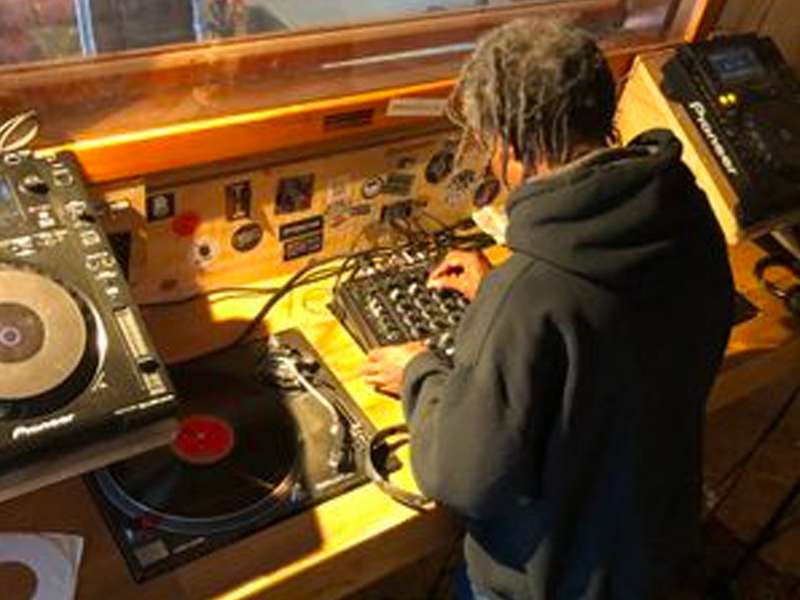Weaving together Angola’s political & social histories with investigations into the country’s popular music, folk music and dance styles, artist and cultural commentator Edward George presents an all new podcast dedicated to Electronic Music From Angola. Edward’s in-depth & idiosyncratic aural essay & documentary approach is well documented on the stunning The Strangeness of Dub series on Morley Radio and follows on from his work in the Black Audio Film Collective and in dub-techno group Hallucinator. Get ready for a deep dive.
Kuduro: Electronic Music of Angola – Part One
Kuduro is the electronic dance music of a generation born and raised during Angola’s traumatic and protracted civil war. It started life on Angola’s margins, in the clubs and ghettos of the nation’s capital, Luanda, but its influence can be heard in Angolan hip hop, R&B, and techno. In the twenty-first century Kuduro is the official, state sanctioned international sound of young, post-war Angola. Broadcaster and music obsessive Edward George takes us on a journey through the social history of Kuduro. He looks at what this insistently joyous club music can tell us about the relationship of dance music to the machinations of state power, and what is left unsaid both during and in the aftermath of the civil war.
The podcast was produced by: Alannah Chance

Excerpts from Kudoro Songs
Quiet as its kept, Kuduro has been around since the late twentieth century. Kuduro is the electronic dance music of a generation born and raised during Angola’s traumatic and protracted civil war. Kuduro started life on Angola’s margins, in the clubs and ghettoes of the nation’s capital, Luanda.
Kuduro’s influence, its permutations and its variations, can be heard in Angolan hip hop, R&B, and in the techno and house coming out of Angola, Portugal and the UK. Kuduro is the rhythm of the Angolan diaspora – and much more. In the twenty-first century Kuduro is the official, state sanctioned international sound of young, post-war Angola.
To find out how that means, how it happened, and what such an insistently joyous music of club bangers and party anthems might want to tell us about the relation of dance music to the machinations of state power, about life and love and silence and death, during and after civil war, join Edward George on a journey through the music and social history of Kuduro.
Translator and academic Carla Fernades has translated a series of songs especially for referencing in Edward George’s podcast for Counterflows At Home. Mostly they have been translated from Portuguese but some are from the Kimbundu language of Angola.
Comboio II (The Train) – Os Lambas
I am what I am
I will never stop being just that
I will sing kuduro until death
O Guerrilheiro (The guerrilla soldier) – David Zé
If you are from MPLA, this regards everyone
One people, one nation
From Cabinda to Cunene
Down with disunion
Angola Me Leva (Take me, Angola) – Rei Helder
The people are happy
with the arrival of peace.
Rave Ao Vivo – Sebem
Ok, we move this city.
We move Luanda.
Lets turn it up, people, right now.
Tomorrow will be hell
Rock Santero – Tony Amado
I came to Angola to make money.
Fuss in Angola!
Fuss in Angola!
Uwaweh, Yoyota!
Uhuuu! Fuss in Angola.
Work. Work. It’s killing me.
It’s killing me. It’s killing me
A Felicidade (Happiness) – Helder Rei & Sebem
Happiness
was taken
It ran
It was stolen


